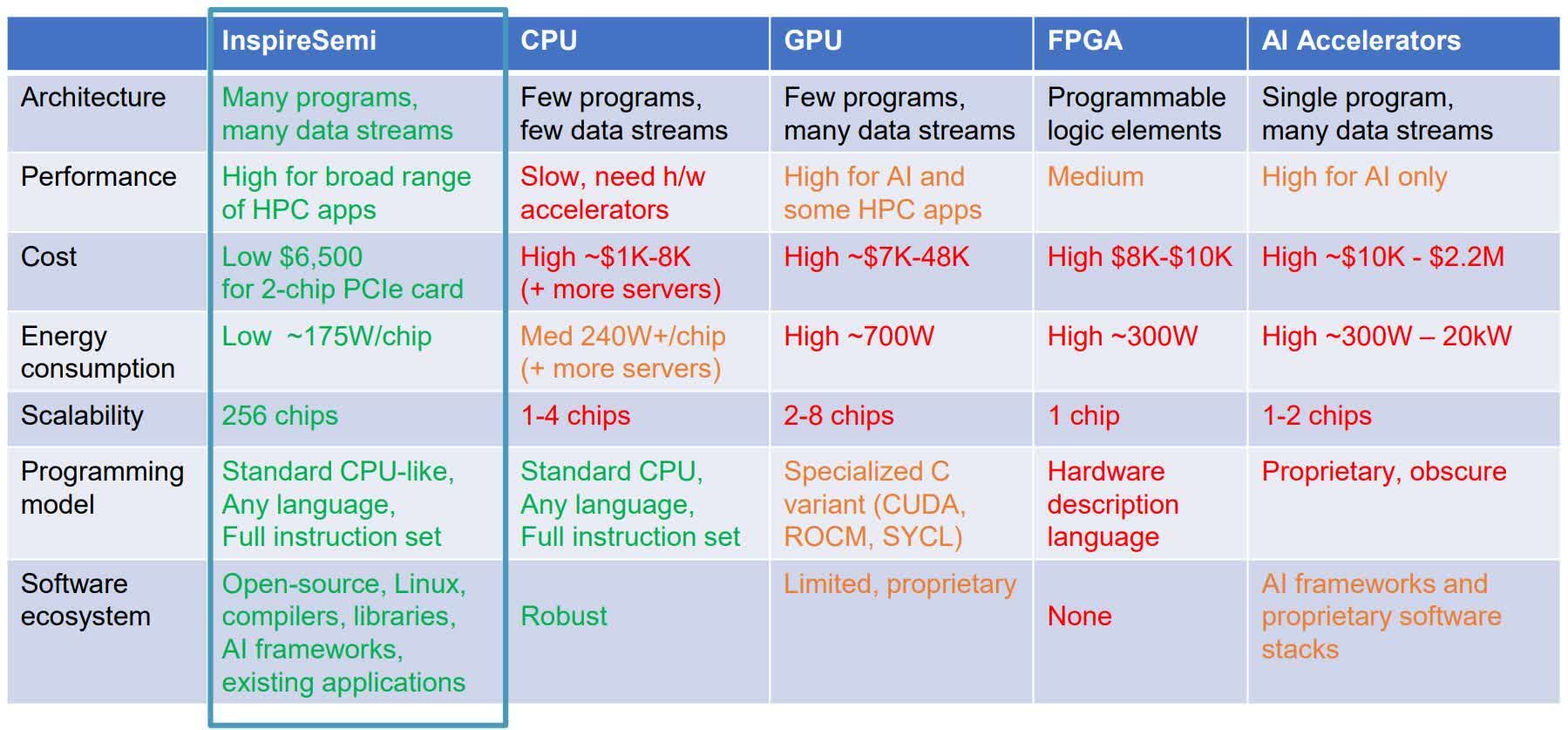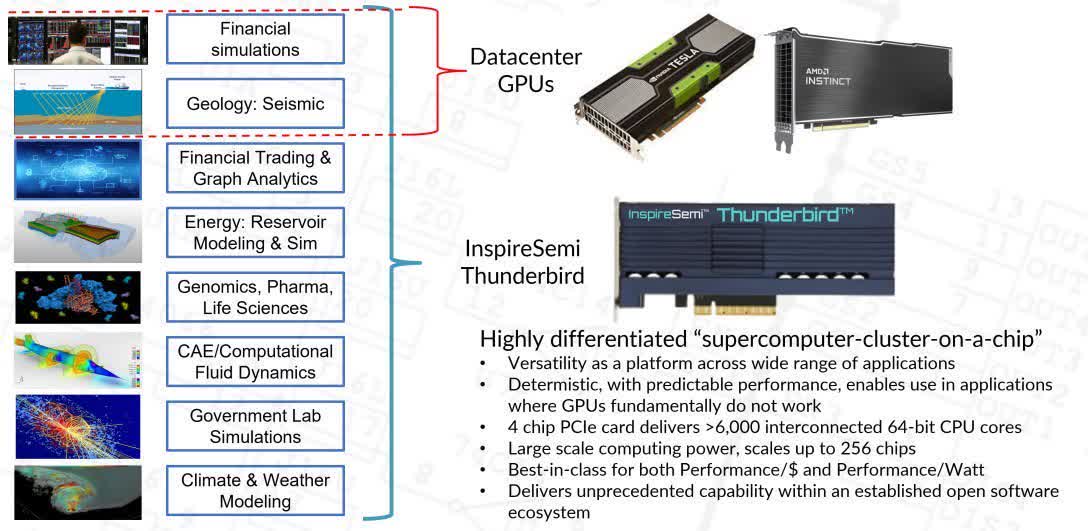Something to look forward to: InspireSemi is betting big on its "supercomputer-on-a-chip" product called Thunderbird. The company believes that leveraging open-source RISC-V architecture and agnostic software compatibility makes its PCI add-in card more affordable, accessible, and efficient than its competitors.
The Austin-based semiconductor company InspireSemi announced that it has tapped out its first Thunderbird "supercomputer-on-a-chip" comprising 1,536 64-bit superscalar RISC-V CPU cores. Four chips can be installed on a single accelerator card, in a form factor similar to a GPU. This configuration brings the total number of cores per card to 6,144, with the potential to scale to multi-processors in a single cluster connected using high-speed serial interconnect.
That sounds like a lot of horsepower, but who is it geared toward? InspireSemi says their product addresses several critical areas of HPC workloads.
Thunderbird utilizes standard CPU programming models and compiles without creating workloads on custom platforms like Nvidia's CUDA or AMD's ROCm. This means existing HPC workloads running on CPUs should have little to no custom code to run in Thunderbird. Also, the product is adaptable to existing server infrastructure as it's a PCI add-on card, allowing InspireSemi to reach more customers who do not have the funds to build out new infrastructure and facilities.
According to InspireSemi, the processor's open-source design and agnostic software allows them to target many industries: "Thunderbird accelerates many critical applications in important industries that other approaches do not, including life sciences, genomics, medical devices, climate change research, and applications that require deep simulation and modeling" said the company's founder and CTO Andy Gray.
Thunderbird means to inherit the power efficiency of the RISC-based architecture. InspireSemi claims a 30-60% power efficiency compared to similarly capable solutions. One metric is up to 24 FP64 TFLOPS at 50 GFLOPS/W (480W). The comparison is made against Nvidia's Ampere A100 at 19.5 FP64 TFLOPS, it sounds promising considering that Thunderbird's pricing would start at $6,500.
The speed at which companies are utilizing open-source solutions is remarkable. The Unified Acceleration Foundation's (UXL) mission is to develop universal standards for vendor-agnostic hardware and software, with Intel being one of the main contributors through its oneAPI framework.
If open-source initiatives for building a more open platform continue to gain momentum, then companies like InspireSemi may have a bright future.


